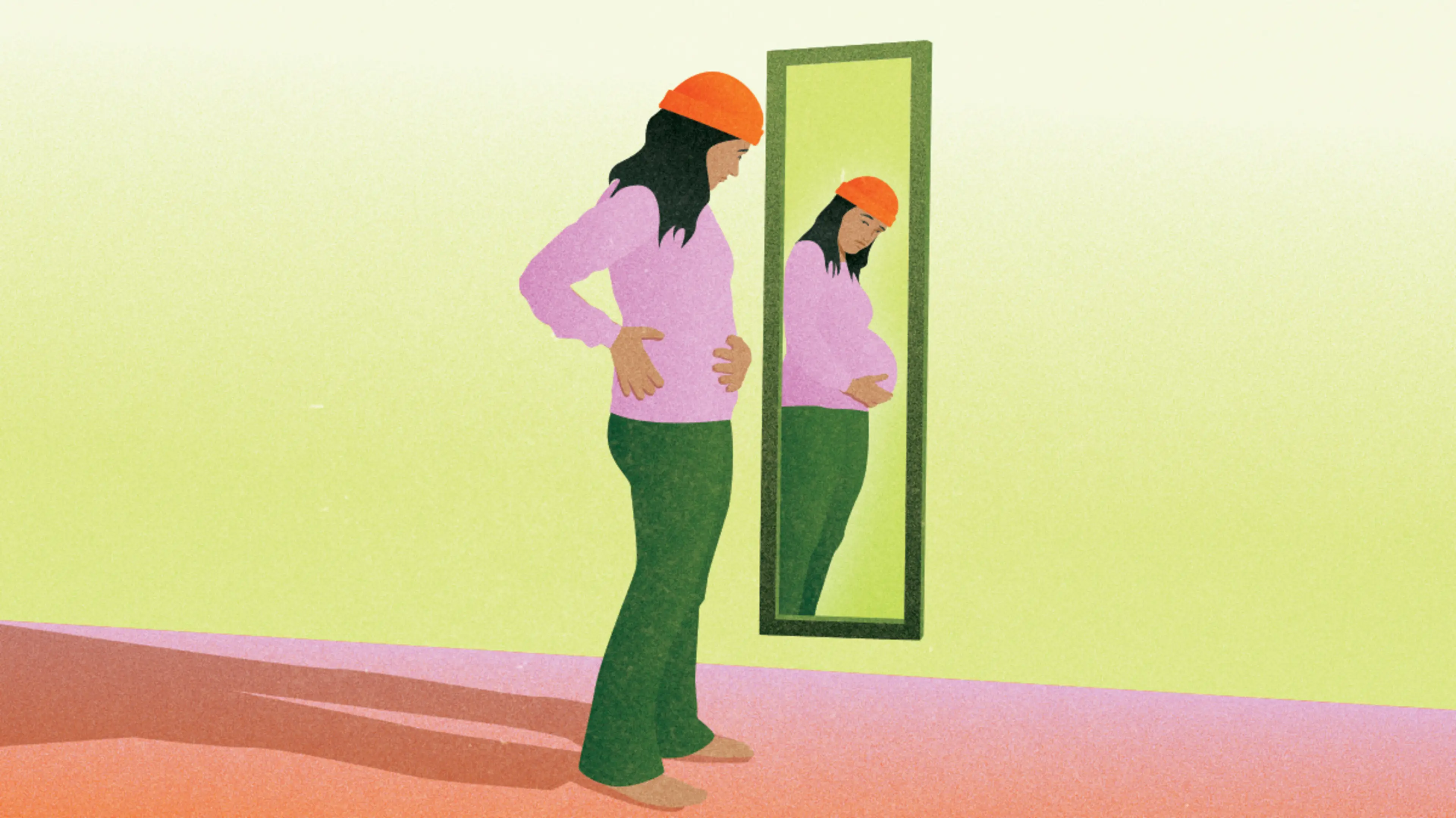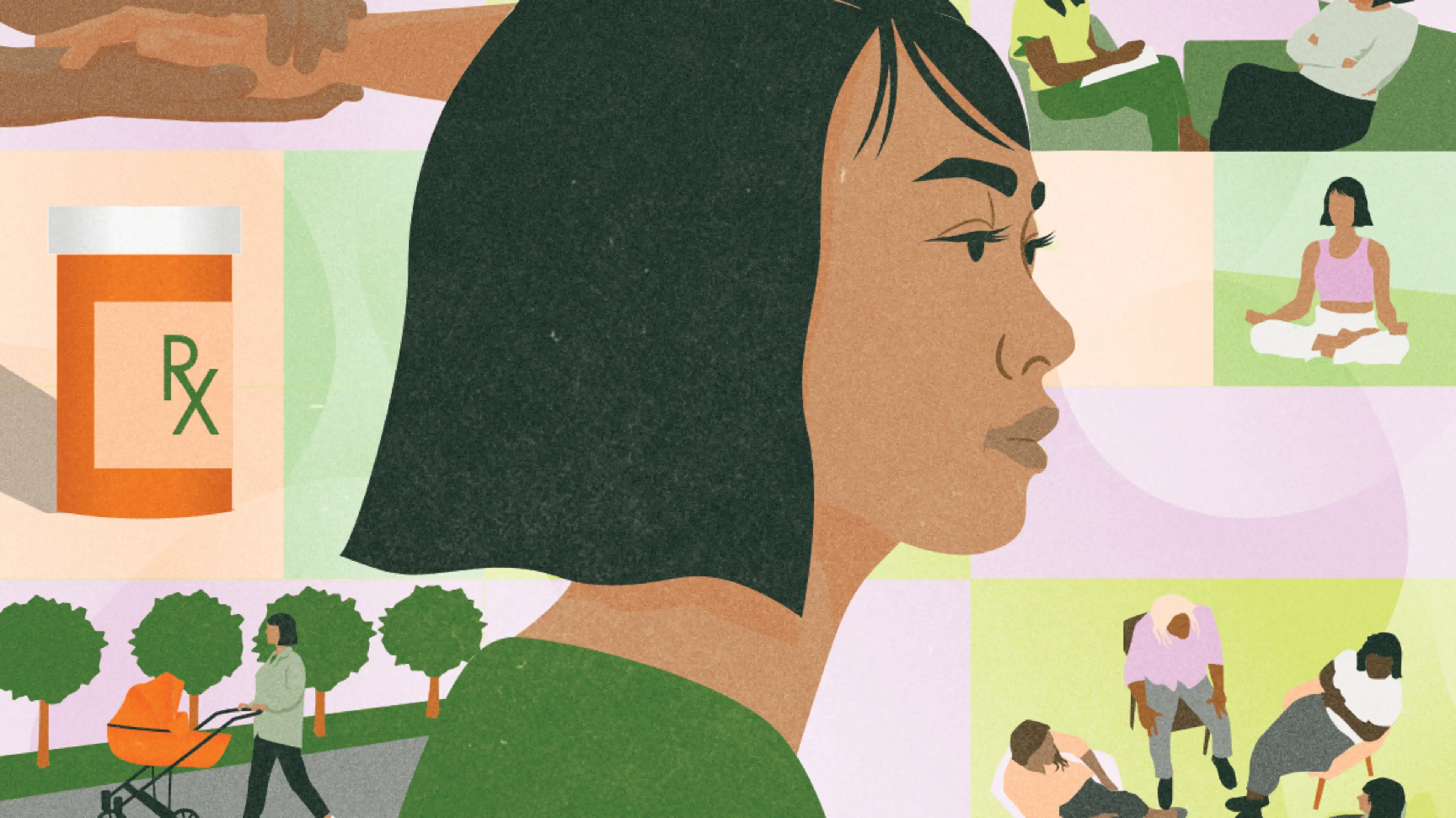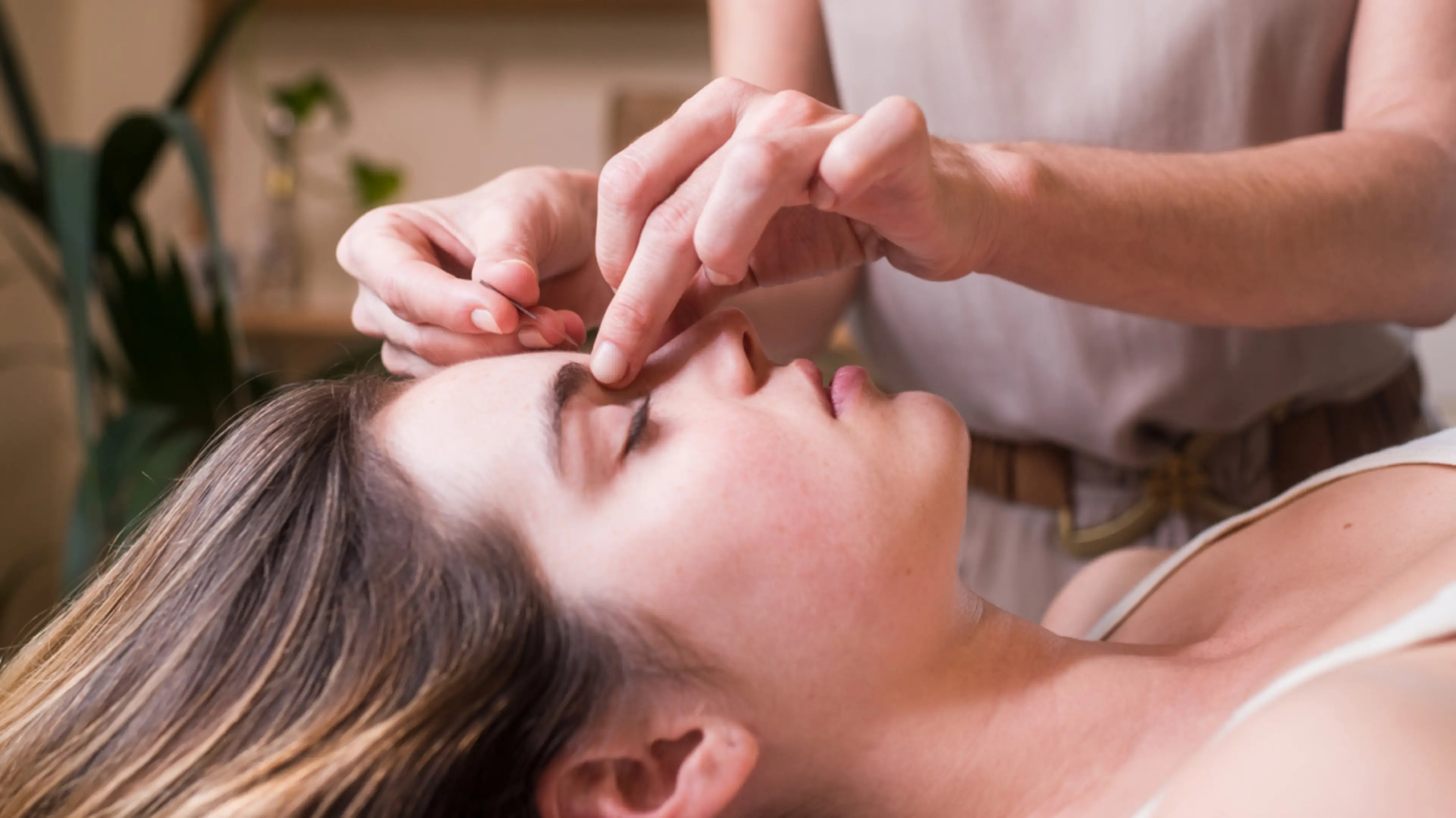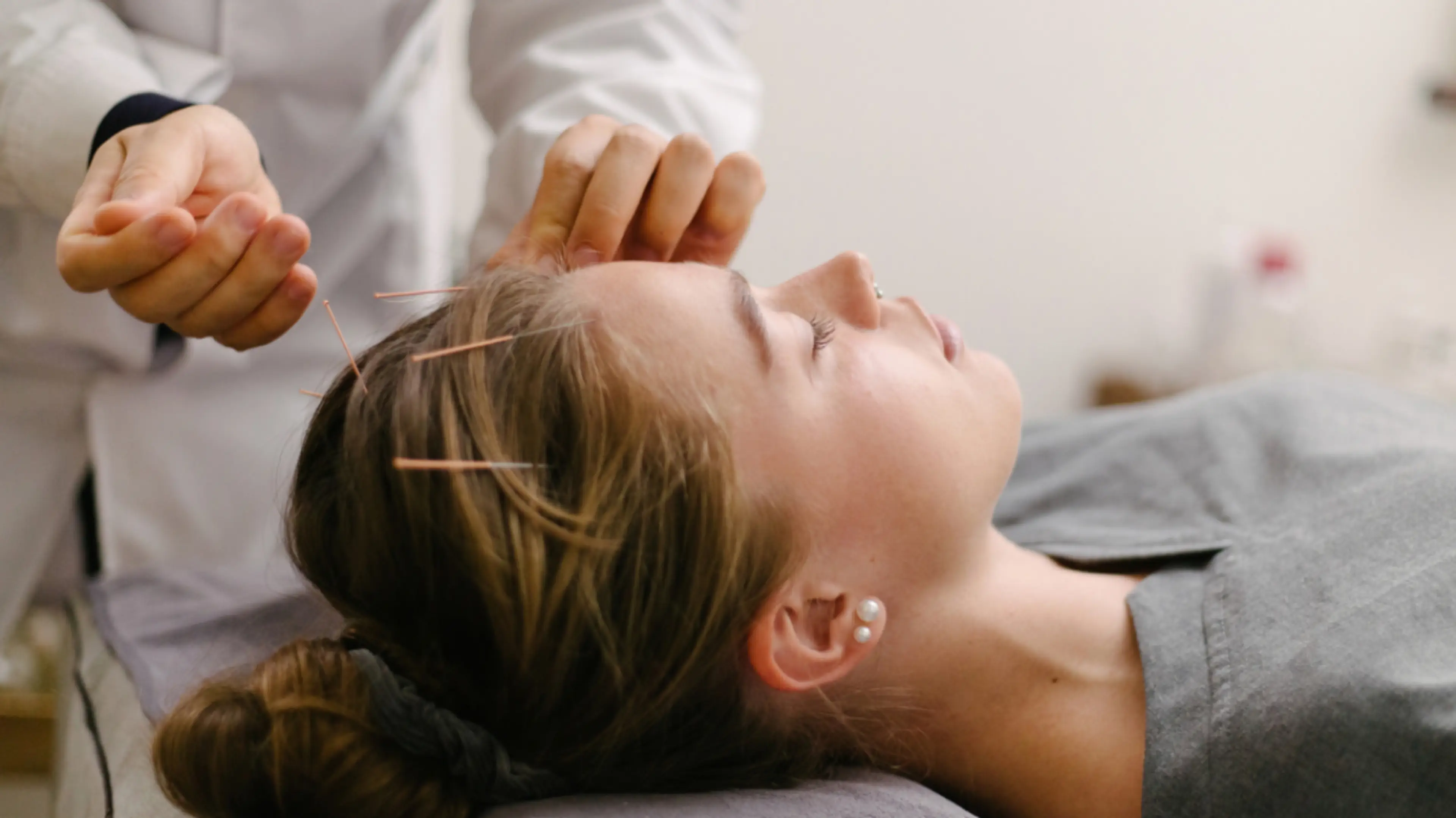Finding out you’re pregnant can be an emotional rollercoaster. One minute you’re ecstatic and the next you’re a nervous wreck. That’s all pretty normal, considering your entire body (and life) is going to transform in the next nine months. But what if the happiness you’re supposed to be feeling is more like abject fear? That’s exactly how Alexia Leachman felt when she found out she was pregnant for the first time. Instead of relishing in the joy and wonder of her pregnancy, her entire world collapsed. “I just felt this huge sense of terror.”
Then, when she lost the baby three weeks later, a different feeling took her by surprise: overwhelming relief. “I thought, why are you experiencing relief from miscarriage? What kind of woman experiences relief from miscarriage?” she says. “I didn’t know that I had a phobia, I just thought I was a mess emotionally.”
It took a year, some deep work on her anxiety and depression, and another pregnancy later for Leachman to realize that she actually did want kids, but she was dealing with something bigger—an intense fear of pregnancy and childbirth. This is called tokophobia1 , and unsurprisingly, many women don’t even know it exists, let alone that there’s help.
What Exactly Is Tokophobia?
It’s difficult to pinpoint how many people deal with tokophobia as study definitions vary, but one 2017 review estimated that about 14 percent 2 of women experience this worldwide. Phobias are considered a type of anxiety disorder, but tokophobia isn’t technically a diagnosis, says Dr. Sarah Nagle-Yang, Associate Professor of Psychiatry and medical director of Women’s Behavioral Health at the University of Colorado, and it sometimes has roots in post-traumatic stress disorder (PTSD).
“I think of it as a symptom, not a diagnosis, because there could be a bigger framework around the fear,” she says. “I’d want to know where this fear is coming from—it could be a fear of your body looking different, fear of something bad happening during labor, fear of something happening to the baby—and for some people it’s around experiences of trauma, either medical trauma or sexual trauma, which can really impact the way people think about their body changing or feeling like things are happening in their body that they don't have control over.”
There’s also the question of severity. Does a low level of anxiety around the potential pain of childbirth count as tokophobia? What about worries around stretch marks? Like all phobias, it really comes down to how that fear affects you, says Dr. Nicole Derish, a psychiatrist specializing in women’s mental health. “Being afraid of something isn’t an issue unless it significantly limits aspects of your life,” she says.
So, if you’re so afraid of getting pregnant that you completely stop having sex with your partner, that’s a problem. Or, if you’re pregnant, and you have so much anxiety around giving birth that you’re avoiding your birthing classes or regular check-ups, you probably need some professional help to work through your fears, says Dr. Nagle-Yang.
What Can These Fears Actually Feel Like?
How this fear manifests is very nuanced, and the way it shows up will really depend on your life experiences and mental health history. But Leachman, who now works with other women with these extreme fears, says, anecdotally, that most people are hyper-fixated on three things: having something foreign in their body, changes to their body, a fear of pain and death from childbirth, or some combination of all three.
“I was repulsed at the idea of seeing a woman stroking her belly and rubbing it, and seeing the baby’s legs move,” says Leachman. “I’d be thinking about the X-Files, and aliens, and parasites, and that’s exactly the language a lot of women [I work with] use, and the fear is about there being an entity in your body that’s moving and you don't have control over it,” she says. “It’s terrifying.”
Other women really worry about irreversible damage to their bodies, says Leachman, and will ask things like, “Am I ever going to have sex again? Will my bits be ripped apart? Will I be able to go to the bathroom normally again? Will stretch marks disfigure me?”
Of course, fear around childbirth is understandable to a degree, says Dr. Nagle Yang. “Pregnancy and childbirth is a big decision, and there are some risks associated with it.” But women with moderate fears will likely be more worried about complications that could occur, while someone with a phobia might go straight to intense fears around dying during childbirth, says Leachman.
For Katie McCann, an extreme fear—centered around losing her baby or her own life during pregnancy and childbirth—developed early in her career as a paramedic. “I witnessed numerous childbirth complications and tragedies firsthand. This gave me a heightened awareness and anxiety over everything that could go wrong,” she says.
If any of this sounds like you, know that this is a safe space, and there is hope. Leachman and McCann are proof—both were able to work through their fears, deliver two healthy babies each, and ultimately embrace motherhood with open arms.
How Can You Work Through Your Fear of Pregnancy and Childbirth?
Pregnancy is often sold to women as being joyous, so when you feel anything other than that, you may be hesitant to talk about it. Breaking your silence is the first step. The next step, says Dr. Derish, is to find a therapist who is skilled in cognitive behavioral therapy or exposure therapy. Once your therapist gets to the root of your anxieties and fears, the real work begins. (Note that treating uncontrolled anxiety, in general, can also help you cope with phobias, she says.)
Typically, that means gradual exposures, and that can be done in a lot of different ways, says Dr. Derish. “We can write a script out of your idea of the worst possible thing that could happen,” she says, “and sometimes what we do is repeat it again and again,” because when you write it all down, it loses some of its energy.
Leachman practiced a form of this that’s often used in the field of energy psychology3 to treat anxieties and phobias. First, she wrote down every single fear she had around pregnancy and childbirth. Then, she repeated certain mantras for each fear, while also using acupressure4 or tapping therapy5 to “release” energy. “That gave me the ability to heal.”
Then there are in vivo exposures. “Let’s say you’re afraid of the hospital. We might go to the parking lot, then to the lobby, and then maybe do a tour of the labor and delivery floor,” says Dr. Derish. “It’s a guided gradual exposure to your fear.”
The point of these exposures is to lessen your anxiety, because there is a tendency to avoid the things that make you anxious. “If you avoid it more, the bigger it gets, it becomes a monster in the cabinet,” says Dr. Derish. “Whereas, if you peak into it and slowly interact with that anxiety, over time, it tends to lose its power.”
What Else Can You Do to Manage Your Anxiety in Daily Life?
If you’re working on the big stuff in therapy, but you still notice a low level of anxiety in your everyday life, things like exercise, mindfulness, and diaphragmatic breathing can all be useful tools. “Think about yourself as someone who has coped with anxiety and gone through things that are challenging,” says Dr. Derish. “You can reframe it, and borrow from coping skills you have already developed.”
McCann took matters into her own hands by educating herself on the facts, risks, and statistics of pregnancy and childbirth, discussing worst-case scenarios, making contingency medical plans, and avoiding horror birth stories, which all helped to ease her fears. Perhaps her best advice for other women who are struggling? Just talk about it. “Confide in healthcare providers and supportive family and friends—you don’t need to hide this fear,” she says. Most of all, remember, having this anxiety is not a reflection of who you are or who you will be as a mom.













